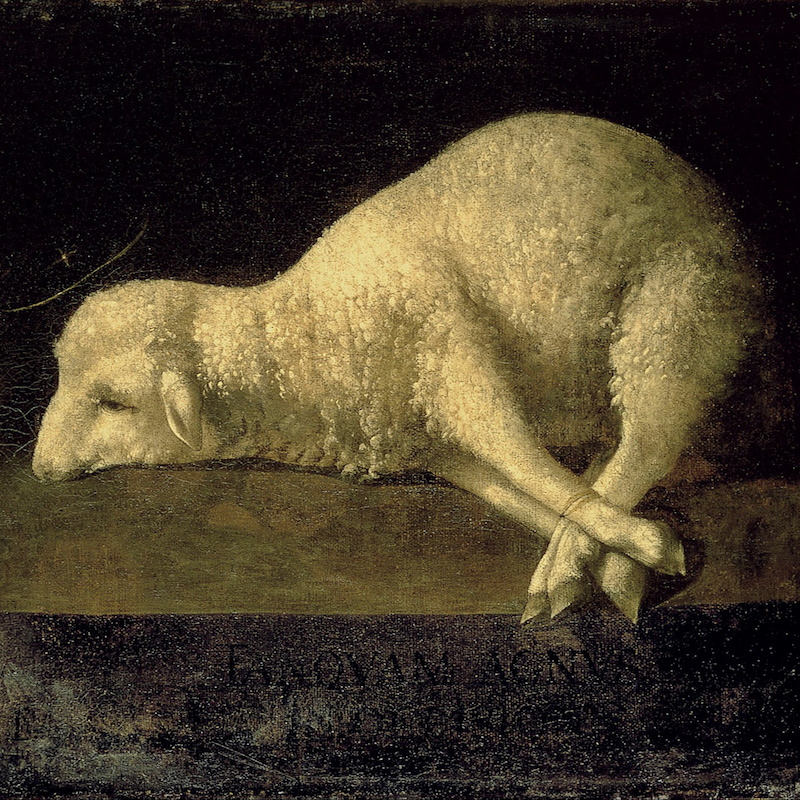A LENTEN ADVENTURE for 2024: Passover - Part 1, Commemorating Salvation

A LENTEN ADVENTURE for 2024 - Monday March 4
Today we have arrived at almost the half-way point on our journey towards Holy Week. As I reflect on where we are headed – the commemoration of the transcendental events that took place in Jerusalem around 2000 years ago, that is the passion and the death and the resurrection of the God-man Jesus Christ – I also think of Passover, the annual Jewish celebration that Jesus Himself partook of the night before His crucifixion.
God initially established Passover for the Jewish people. The Israelites were slaves in Egypt for four hundred and thirty years, time in which they served the Egyptians with hard labor. (Exodus 1:13,14) God heard their cries to be freed from bondage (Exodus 2:23,24) and raised up Moses to be leader of the people so that he could go before Pharaoh and say, “Let my people go …” (Exodus 5:1). Pharaoh did not want to let the people go, so through Moses, God sent ten plagues to the Egyptians (Exodus 7-12). The last plague was the death of the first born – men as well as animals (Exodus 12:29). Before sending this plague, the Lord told the people of Israel to prepare to leave Egypt because the plague of death would not touch them. Through Moses and Aaron, He gave them the following commands:
“… Tell the whole community of Israel that on the tenth day of this month each man is to take a lamb for his family, one for each household … The animals you choose must be year-old males without defect … Take care of them until the fourteenth day of the month, when all the members of the community of Israel must slaughter them at twilight. Then they are to take some of the blood and put it on the sides and tops of the doorframes of the houses where they eat the lambs. That same night they are to eat the meat roasted over the fire, along with bitter herbs, and bread made without yeast … Eat it in haste; it is the Lord’s Passover. On that same night I will pass through Egypt and strike down every firstborn of both people and animals … I am the Lord. The blood will be a sign for you on the houses where you are, and when I see the blood, I will pass over you. No destructive plague will touch you when I strike Egypt.” (Exodus 12:3,5-8,11-13)
The term “passover” comes from the Hebrew “pesach”, which means “to jump over”, “to pass over”, or “to forgive”. So, when the Israelites applied the blood of the sacrificed lamb over the doors of their houses, the angel of death “passed over” the houses, and the Israelites were “forgiven” of the judgment of death.
Passover was a commemoration and a memorial, first of the Israelites’ salvation from the plague of death of the firstborn in Egypt; and secondly, of the freedom from slavery that the Israelites had experienced for more than four hundred years. God Himself says of Passover: “This is a day you are to commemorate; for the generations to come you shall celebrate it as a festival to the Lord—a lasting ordinance.” (Ex.12:14)
Although God initially established Passover for the Jewish people, whose history is narrated in the Old Testament, the feast of Passover links the Old Testament to the New Testament, in which the history of the Christian people is narrated. There is a very close historic and religious continuity between the Jewish and Christian Passover because of the events of the first Holy Week that took place over two thousand years ago. The lamb that was slain, the sprinkled blood, the meat that was partaken, the unleavened bread, and the bitter herbs … everything has a symbolism and meaning originating in the first celebration of Passover in Egypt 3,450 years ago and leading towards the time of the death and resurrection of Jesus in Jerusalem. In the days that follow, we will explore these symbols and meanings, each one of which point to “Jesus Christ, and Him crucified” (1 Corinthians 2:2).
+ REFLECTIONS